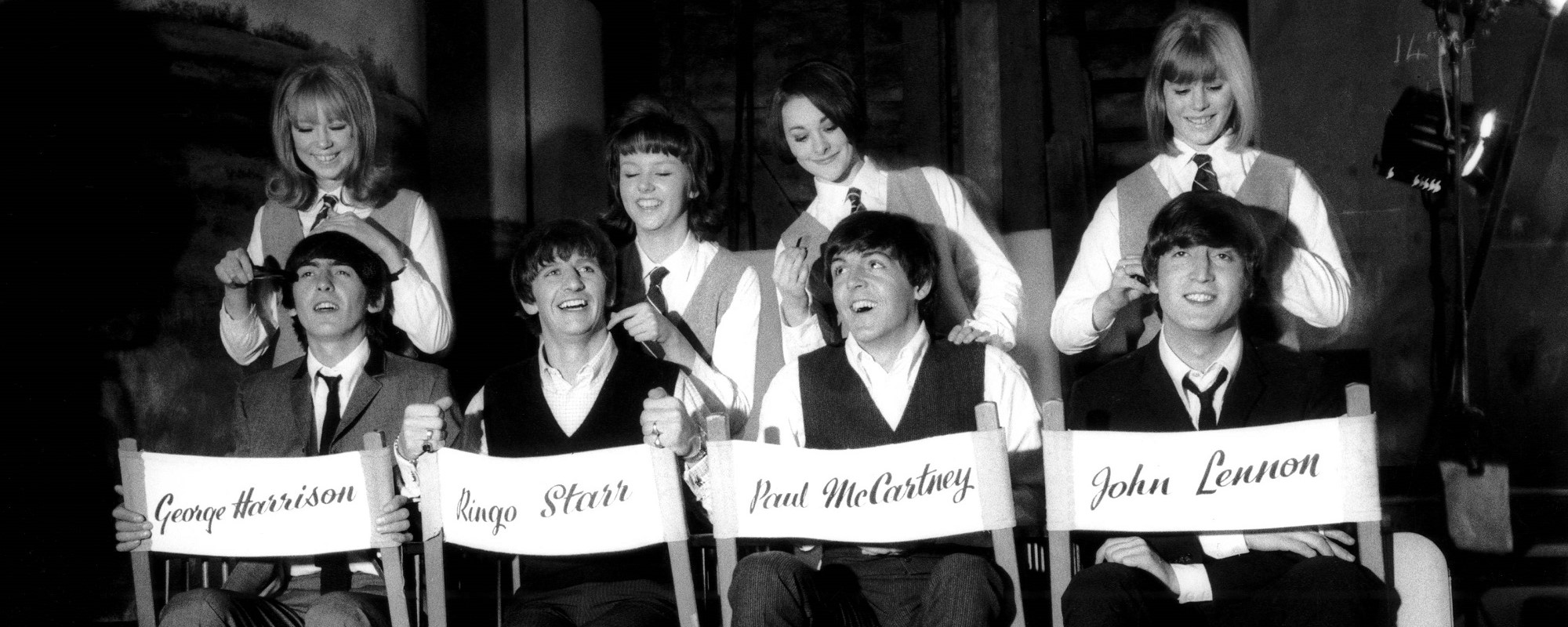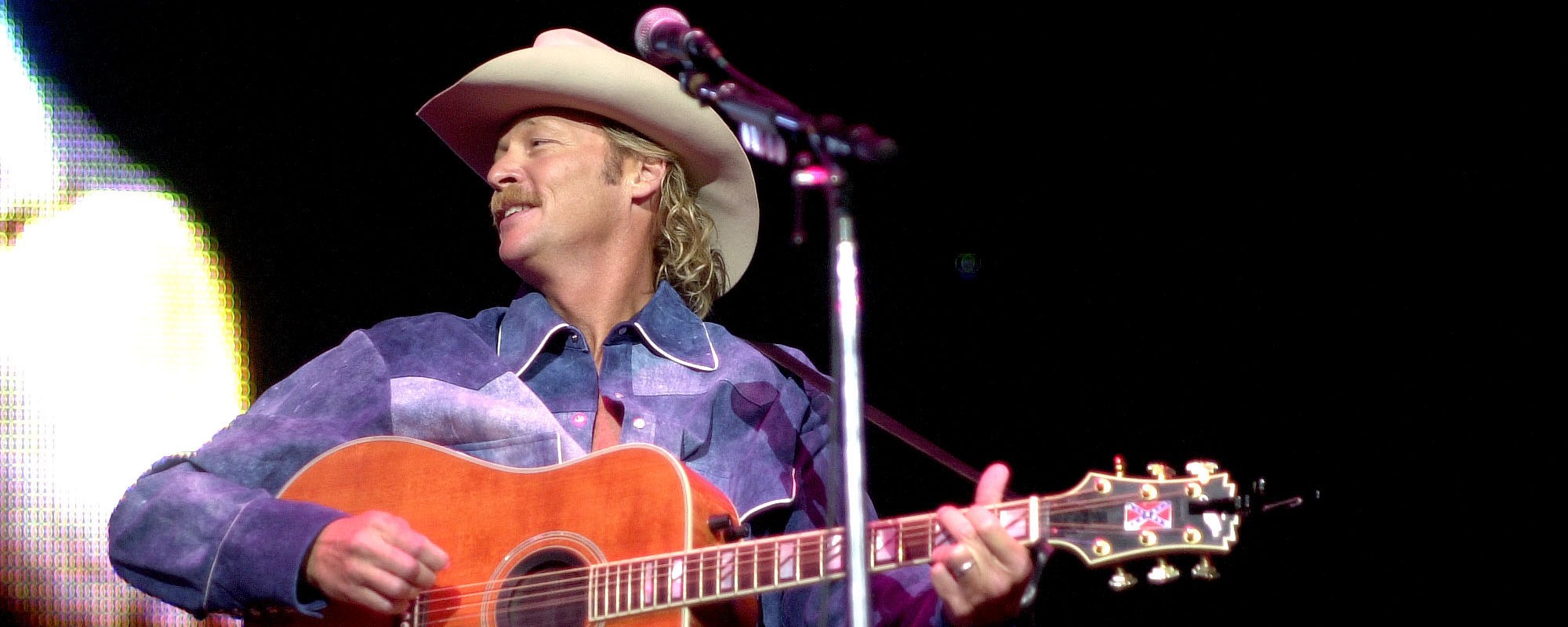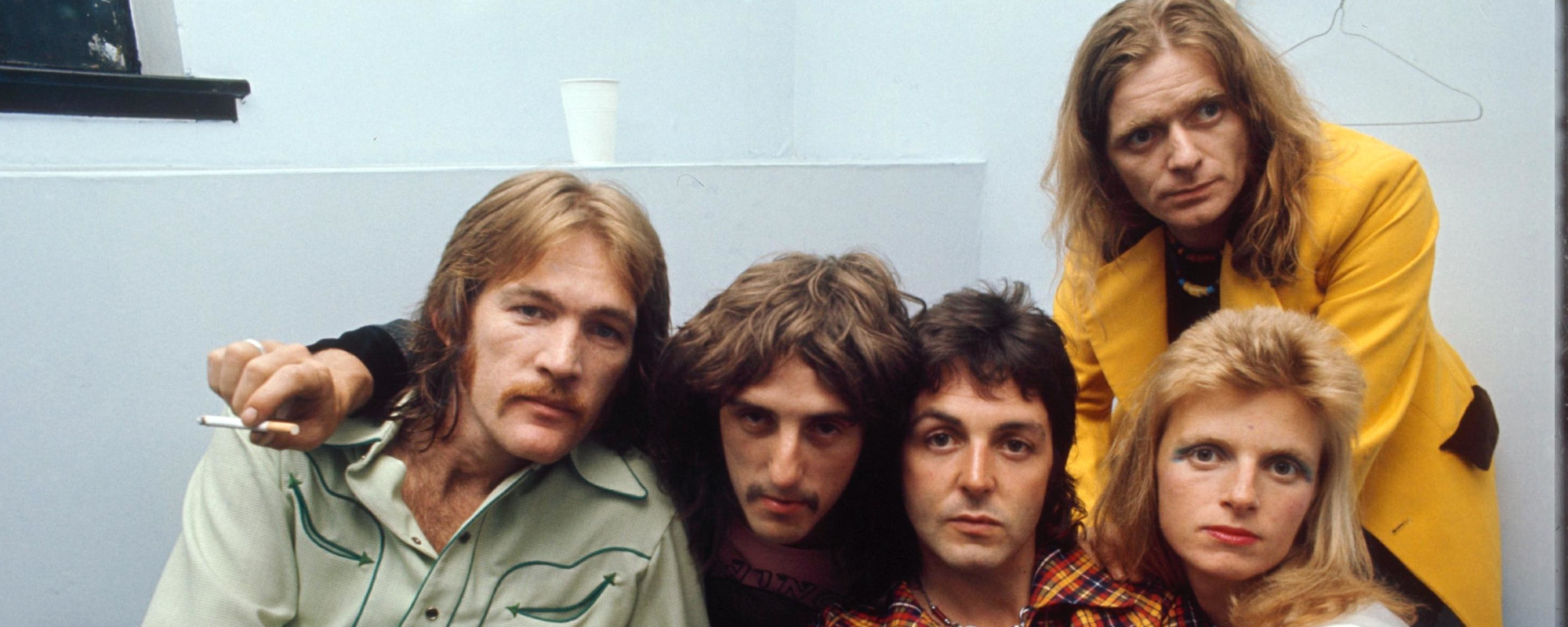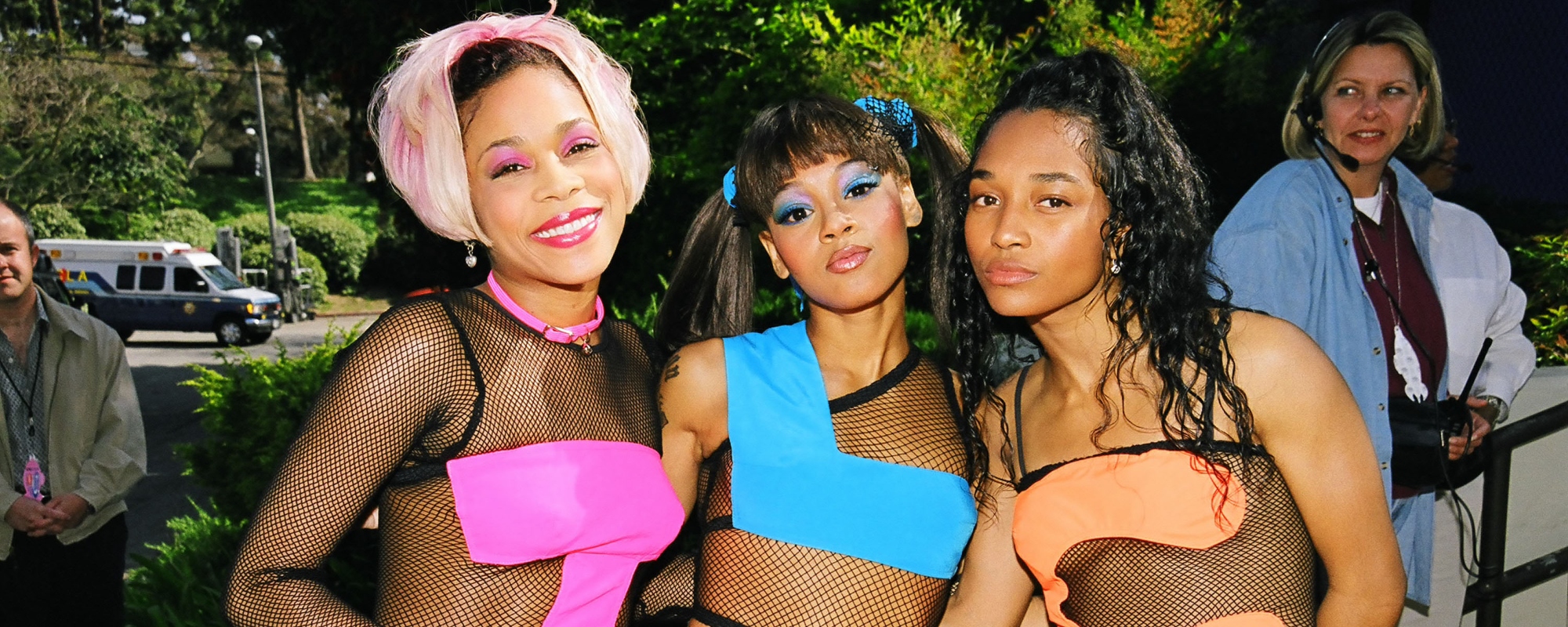When it comes to Gary Clark Jr.’s style as a musician, some have said the 40-year-old Austin, Texas-born guitar player is schizophrenic. But he thinks of his versatility in a less-dramatic and more generation-appropriate manner.
Videos by American Songwriter
Clark Jr. released his latest LP, JPEG RAW, in March, and is on an extensive U.S. tour that will place his eclecticism on full display. Clark Jr. thinks of himself as “an iPod Shuffle.” The musical devices were all the rage in the Aughts, before the age of the do-it-all iPhone. They allowed the ear to be awash in sounds with the push of a button. Whereas listeners once had to rely on radio or individual vinyl records, the postage stamp-sized Shuffles offered space for hundreds of tracks of any type. Clark Jr. has built off a similar penchant for sonic diversity—indeed, he embodies it.
“I soaked it all up,” he tells American Songwriter of his influences before rattling off names ranging from West Coast and East Coast hip-hop artists, George Strait, and En Vogue to Mozart, Silverchair, and Stevie Ray Vaughan. “Guns N’ Roses, Metallica… ‘Enter Sandman’ was one of the first songs I tried to learn on guitar,” Clark Jr. says. “I’m a product of my influences; I’m not trying to fit into a box.”
Some may think of Clark Jr. as a blues man most of all. And they wouldn’t be wrong. But that isn’t the limit to his abilities. He plays big, distorted, heavy rock music, too. He makes beats and spits spoken word. He owns bagpipes and can play the drums, bass, and harmonica. He can even “squeak out a horn line” on trumpet if the song he’s working on requires it. He laughs thinking about this, saying, “I had a neighbor put a note on my car 14 years ago. He said, ‘Damn man, people got babies and shit!’”

But laying down marginal trumpet lines at all hours of the day comes with the territory when a virtuosic artist aspires to capture greatness. People like Clark Jr. don’t fall from the sky. Sometimes talent has to be forged, developed, and honed before it can be recognized. For him, the journey began when he was 12 years old. He laughs again, thinking about his early days engaging with music.
“I was a big R&B guy,” he says. He even had his own little group that won a talent show in middle school. “I was convinced we were going to open up for Boyz II Men,” he says. But then his bandmate moved away to France. Another friend introduced him to the electric guitar. He would listen to her play—loud—through her amp, picking away on a Fender Strat in her all-girl rock band.
“It piqued my interest,” Clark Jr. says. He would go to her house to play basketball, which deepened his interest in music. “I played her guitar, and I felt that power and the sound, and I was like, ‘Oooohhhhh! I need one of these. This is the superpower I was looking for.’” She also introduced him to Stevie Ray Vaughan’s Texas Flood album and Jimi Hendrix’s Ultimate Experience compilation record.
[RELATED: 5 Essential Songs by Gary Clark Jr.]
Given his talent today, listeners might think Clark Jr. was a dynamo on the six-string as soon as he touched it. But it took time. “I guess it was both easy and a struggle,” he says. “Because I was obviously learning something that I wasn’t familiar with. Playing electric guitar, pressing the frets, my fingers were a hot mess and bloody and all scraped up.” But he pushed through, playing the instrument constantly. It became a family affair, too—soon his siblings had secured a bass, drums, and keys so they could jam with him. They’d learn songs like The Jackson 5’s “ABC” and Hanson’s “MMMBop.” (A full-circle moment happened years later in Tulsa, Oklahoma, when Isaac Hanson came backstage at a Gary Clark Jr. concert to introduce himself.)
As he reached his teenage years, Clark Jr. would venture out to Texas music clubs, playing songs at blues jams and watching the grizzled veterans maneuver through the musician’s life. He felt like he was part of a secret world that his school peers didn’t know about and wouldn’t understand. He learned at the feet of locals like Walter Higgs and the Shuffle Pigs—“Like, ‘This is the one, this is the four, this is the five,’” he says. “‘This is a ninth chord, this is a sixth chord, a seventh. This is how you play rhythm.’ It all happened so fast.” He and his cohorts would stay out past 2 a.m. interacting with Lazy Lester and Pinetop Perkins. “Blues legends,” Clark Jr. says.
His home state of Texas particularly shaped him, musically and otherwise. “As a young child,” he says, “you have to learn to watch out for rattlesnakes and water moccasins. I grew up running around and building forts in the woods behind my house. I’d catch crawfish in creeks.” In South Austin, he lived on the edge of the city, in the space between rural and urban. He learned to love both. Bike-riding, paddleboarding, hiking around lakes or up mountains. “Hill country is really beautiful,” Clark Jr. says. “I appreciated that when I was a kid.”
But worldwide fame as an acclaimed musician wasn’t far off. During his career, Clark Jr. has earned four Grammy Awards, including one for Best Traditional R&B Performance. His 2019 album, The Land, was a big commercial hit, peaking at No. 6 on the Billboard 200. He made appearances in popular movies like Chef by billion-dollar director Jon Favreau. Yet, Clark Jr. remains a humble family man. “I don’t really feel any way about an elevated sort of presence,” he says. “I got a family with three young kids. All that [fame] stuff goes out the window.”
But that doesn’t mean others stop seeing him as a superstar to glom onto. “I was hanging out at this place last night,” Clark Jr. says, “and there was this sweet, intoxicated lady. She really wanted to put her lips on me and she was kind of relentless. She was very sweet but very intoxicated. I had to—you know how Seinfeld rejected Kesha? No thanks, no thanks!” (This is a reference to the viral moment when the pop star Kesha approached Jerry Seinfeld for a hug, causing the comedy legend to scrunch up his face and decline, stepping back.)

Clark Jr. laughs again, describing how the club manager, who was sitting next to him in that awkward moment, said, “I don’t know if I could do that.” To which Clark Jr. responds, “It’s alright, man. It’s better than someone wanting to slap you in the face!”
Despite his disinterest in the glitz and carnal fruits of stardom, Clark Jr. says he does put a lot of pressure on himself to always be getting better. “I’m my own worst best critic,” he says. “Really, I’m doing this because I love it. If I don’t have that fire in myself, there’s no point. I want to be better than I was the day before.”
Clark Jr. is certainly at his best on his most recent LP, his sixth to date. The album features Valerie June, Stevie Wonder, George Clinton, and other special guests, and was born of a time of curiosity. The title, JPEG RAW, is a reference to technology—something Clark Jr. doesn’t necessarily prize. But it also stands for “Jealousy, Pride, Ego & Greed; Rules, Alter ego & Worlds.” The theme surfaced during the pandemic when so much was up in the air. Standout tracks include the rugged opener, “Maktub,” and the exultant “Hearts in Retrograde.”
“I was just kind of lonely,” Clark Jr. says of the time he began writing it, “sitting around making beats and playing guitar. Then all of a sudden the world kind of shut down. Slowly but surely, the band got together. We were as cautious as possible. It was a crazy time.” As his bandmates got together to work, there was no sense of what the music would be for at first—if anything. It was simply about communion. Clark Jr. would smoke brisket while his wife, model Nicole Trunfio, would fix up some sides. Everyone would pour drinks—wine and mezcal—and they’d sit in a room and “make up stuff.” He didn’t know if he’d ever tour again, if the music business was kaput, or if anyone would hear Gary Clark Jr. music again except the people he was making it with. “Is it over?” he wondered.
But the work turned out to be good therapy. It was people getting together to get to know one another better, to understand each other through the sounds. “Let’s just make something” was the only edict. “I didn’t know if this was a Gary Clark Jr. album or another thing,” he says. “It was really just an organic process.” He kept a small circle of people around him and even took his turn working the engineering boards. The result is a record of depth, diversity, and directness. “Looking back,” he says, “it was a great time. It was quiet.” He recalls beautiful cotton candy-colored skies some nights, with deer eating grass on his Texas ranch some afternoons. “It was amazing!” he says.
The most important thing about the album—and what Clark Jr. finds himself most proud of regarding it—is that it represents him, who he is today, in full. “This is a real accurate representation of me right now,” he says. Music plus family plus collaboration—it’s all infused in the new record like spices and sauce dabbed on top of a good piece of protein.
As far as the future is concerned, Clark Jr. is happy as ever to be hitting the road, bringing new songs to fans, and bringing new fire to his past catalog. “I’ve never been this excited to be playing new stuff,” he says. “It’s freeing.”
Clark Jr. hopes the songs he brings to his audiences offer them what his favorite music offers him. Namely, a chance to slow down, physically and mentally. To muse and to marinate. To consider and savor, with thanks to the benefit of time.
“[Music] takes me out of my worry, my thoughts, my anxiety, my ego,” Clark Jr. says. “Boom, [there’s] somebody else’s perspective through song, melody, and rhythm. That’s a cool thing. I sit down and go, ‘Dang! That’s cool! Somebody sat down and did this stuff. Humans are pretty cool.’”







Leave a Reply
Only members can comment. Become a member. Already a member? Log in.